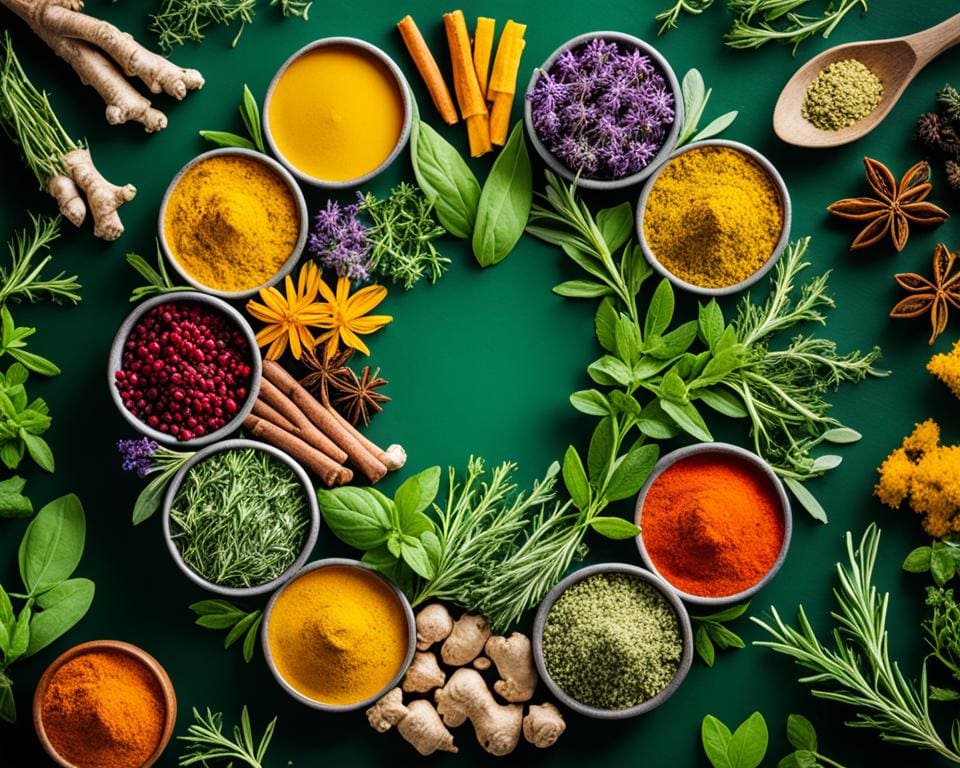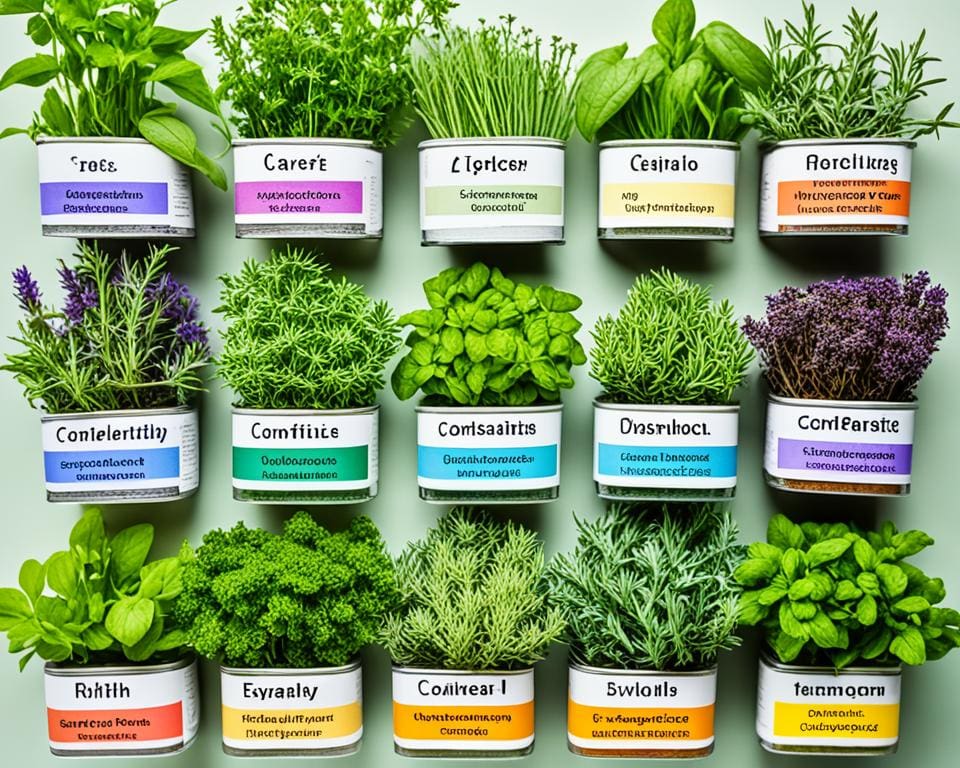People have used herbs for healing for thousands of years. The FDA regulates herbal supplements in the US, but not as strictly as prescription drugs. It’s crucial to understand the herbs you use and check product quality.
Some companies may add fillers to cut costs. This can reduce the herb’s effectiveness or cause side effects. Even natural remedies need caution, as they can interact with medications.
Let’s explore safe and effective herbal medicines for common health issues. These natural cures offer a holistic approach to wellness. They can support immune function, soothe digestion, and improve sleep.
Natural Remedies for Cough, Cold, and Sore Throat
Natural remedies can help with cough, cold, and sore throat. Many herbal solutions support your body’s healing process. They offer relief without over-the-counter medications.
Tea and Honey for Throat Coating
Warm tea can soothe a sore, irritated throat. Throat-coating herbs like licorice and slippery elm reduce inflammation and discomfort.
Honey is a classic remedy with throat-coating properties. It soothes pain and suppresses coughing. Add honey to tea or eat it straight.
Echinacea, Elderberry, and Pelargonium for Immune Boosting
Several herbs work as natural cough suppressants. Echinacea can shorten cold symptoms when taken early. Elderberry syrup has antiviral properties that help with colds and flu.
Pelargonium can reduce the severity and length of colds. These plant-based cold and flu treatments come in various forms.

“A 2021 literature review found that honey was more effective at relieving symptoms of acute upper respiratory tract infections compared to antibiotics and antihistamines.”
Try teas, tinctures, or capsules as natural cold and flu remedies. They’re easy to add to your daily routine.
Herbal Remedies for Common Ailments
Ginger for Digestive Issues
Ginger is a powerful natural remedy for digestive problems. It soothes upset stomachs, reduces nausea, and eases motion sickness. You can enjoy ginger as tea or candied ginger on the go.
Ginger works differently than typical pain relievers. It blocks inflammatory compounds and breaks down existing inflammation with its antioxidant properties.
Probiotics for Gut Health
Probiotics are live bacteria and yeasts essential for a healthy digestive system. They help manage diarrhea caused by infections or antibiotic use. You can find probiotics in supplements and fermented foods.
Yogurt, miso paste, kombucha, kimchi, and raw sauerkraut are great sources of natural probiotics. Adding these to your diet supports gut health and boosts your body’s defenses.
“Ginger is a versatile herb that can provide relief for a range of digestive problems, from nausea to stomach upset. Its anti-inflammatory properties make it a natural option for promoting gut health.”
Ginger and probiotics are powerful allies for digestive health. They offer herbal remedies for digestive problems and natural treatments for nausea and stomach upset.
Adding these plant-based supplements to your daily routine can lead to a happier, healthier gut.
Topical Herbal Treatments for Soreness and Skin Irritation
Nature offers a variety of herbal creams and ointments to soothe muscle aches and skin irritation. These natural anti-inflammatory remedies provide targeted relief without harsh side effects. Plant-based treatments like Arnica and Tea Tree Oil offer effective botanical skin care solutions.
Arnica, a flowering plant, has been used for centuries to address muscle soreness and joint pain. A 2023 study found lavender oil effective in reducing pain during arterial needle insertion.
- Tea tree oil, with its anti-inflammatory and antimicrobial properties, can be used as a spot treatment for acne and athlete’s foot.
- Calendula, a vibrant marigold-like flower, is renowned for its ability to soothe skin irritations like eczema and diaper rash.
- Rosemary oil has been suggested to treat headaches, muscle and bone pain, with potential benefits for anxiety, depression, Alzheimer’s, epilepsy, and Parkinson’s disease.
These botanical skin care solutions offer a gentle alternative to synthetic chemicals. They address common ailments and skin concerns effectively. Incorporating these natural anti-inflammatory remedies into your routine can promote healing and balance.
“Herbal remedies have been used for centuries to address various health concerns. The trend towards natural, plant-based treatments continues to grow. Herbal creams and ointments provide natural anti-inflammatory remedies and botanical skin care solutions without synthetic drug side effects.”
Herbs for Better Sleep, Anxiety Relief, and Relaxation
Natural remedies can improve sleep, reduce anxiety, and enhance relaxation. Herbal allies have shown promising results in clinical studies. These plant-based solutions offer a gentle approach to managing common health concerns.
Chamomile, a beloved American herb, eases anxiety and promotes relaxation. A 2019 study found that ashwagandha significantly reduced stress levels. Lavender essential oil calms the central nervous system, potentially helping anxiety-related disorders.
Valerian’s effectiveness for anxiety and depression is debated. However, some studies suggest it may improve sleep quality, especially in older adults. A combination of hops and valerian can reduce sleep latency.
Passionflower and Galphimia glauca are two other plant-based options. They may offer relief for those struggling with restlessness, nervousness, and anxiety.









